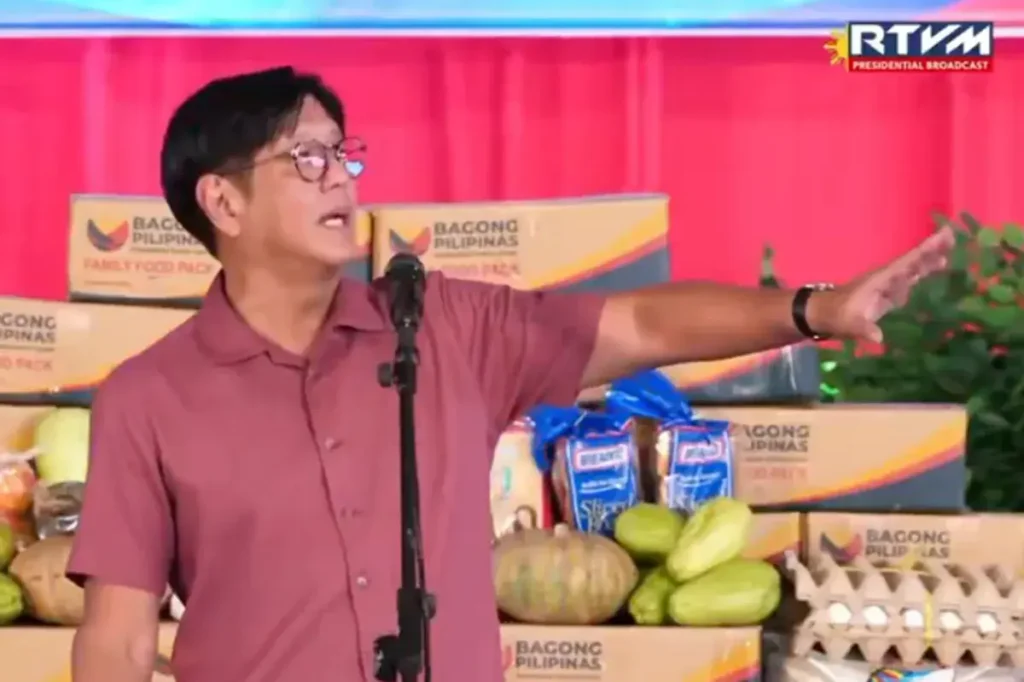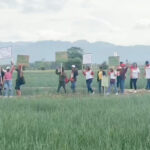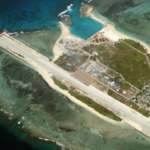
On Friday, President Ferdinand Marcos Jr. reaffirmed his goal of eradicating hunger among Filipinos by the time he leaves office in 2028.
He made this statement in front of the Sama Bajau Indigenous People community at a covered court in Barangay Sinunuc, Zamboanga City, where he was in charge of a government service caravan.
“Yun po ay programa ko po ‘yan dahil ang pangarap ko na pagkatapos na ako mag-Presidente, wala nang gutom na Pilipino,” Marcos remarked, alluding to the Department of Social Welfare and Development’s “Walang Gutom” Program.
According to the Presidential Communications Office, the organization gave 500 families family meal packs and 71 families P3,000 worth of grocery packs under the Walang Gutom Program.
It also added that 500 IP families received P10,000 each through the Assistance to Individuals in Crisis Situations (AICS) program, and 100 beneficiaries received P15,000 each under the Sustainable Livelihood Program.
Declared a government flagship initiative, the DSWD’s Walang Gutom 2027: Food Stamp initiative seeks to alleviate stunting, malnutrition, and involuntary hunger among Filipinos. According to the organization’s website, beneficiaries can purchase certain nutrient-dense foods from approved merchants and farmer-driven businesses.
This year, the program aims to enroll 600,000 households.
The Asian Development Bank (ADB) announced in August that it will provide the Philippines with a $400 million loan for the initiative.
The caravan also provided other services like economic support and medical care.
Additionally, Marcos saw ten boats being turned over to Maasin Fisherfolk Association members.
“Dahil kung minsan, kapag…ang gobyerno ay naghihintay lang na kayo ang lumapit, hindi naman namin naseserbisan kayong lahat. Hindi namin kayo natutulungan lahat,” he remarked.
The President said, “Kaya’t ang ginawa namin, kami na lang ang pupunta. Ang gobyerno ang pupunta sa inyo para makapag-register kayo,”
Marcos assured the public that his administration is working to strengthen long-term food security through reforms in land use, digitalization of farm systems, and diversification of agricultural production.






